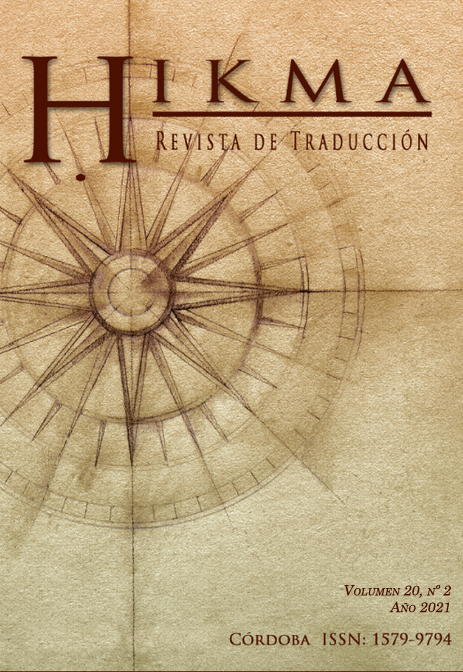BAER, Brian James and KAINDL, Klaus. Queering Translation, Translating the Queer. Theory, Practice, Activism. New York & London, Routledge, 2018, 234 pp., ISBN: 9780367365677
Contenu principal de l'article
Résumé
This groundbreaking work is the first full book-length publication to critically engage in the emerging field of research on the queer aspects of translation and interpreting studies. The volume presents a variety of theoretical and disciplinary perspectives through fifteen contributions from both established and up-and-coming scholars in the field to demonstrate the interconnectedness between translation and queer aspects of sex, gender, and identity. The book begins with the editors’ introduction to the state of the field, providing an overview of both current and developing lines of research, and builds on this foundation to look at this research more closely, grouped around three different sections: Queer Theorizing of Translation; Case Studies of Queer Translations and Translators; and Queer Activism and Translation. This interdisciplinary approach seeks to not only shed light on this promising field of research but also to promote cross fertilization between these disciplines towards further exploring the intersections between queer studies and translation studies, making this volume key reading for students and scholars interested in translation studies, queer studies, politics, and activism, and gender and sexuality studies.
Téléchargements
Details de l'article

Ce travail est disponible sous licence Creative Commons Attribution - Pas d’Utilisation Commerciale - Partage dans les Mêmes Conditions 4.0 International.
Les auteurs qui publient dans cette revue acceptent les conditions suivantes :
- Les auteurs conservent les droits d'auteur et accordent à la revue le droit de première publication du travail simultanément sous une Licence Creative Commons Attribution, permettant à d'autres de partager le travail en reconnaissant la paternité du travail et sa publication initiale dans cette revue.
- Les auteurs peuvent conclure des accords contractuels supplémentaires séparément pour la distribution non exclusive de la version publiée du travail dans la revue (par exemple, l'envoyer à un référentiel institutionnel ou le publier dans un livre), avec une reconnaissance de sa publication initiale dans cette revue.
- Il est permis et encouragé aux auteurs de publier leurs travaux en ligne (par exemple, dans des référentiels institutionnels ou sur leur site Web) avant et pendant le processus de soumission, car cela peut entraîner des échanges productifs, ainsi qu'une citation plus précoce et plus importante du travail publié (voir L'effet de l'accès ouvert).

